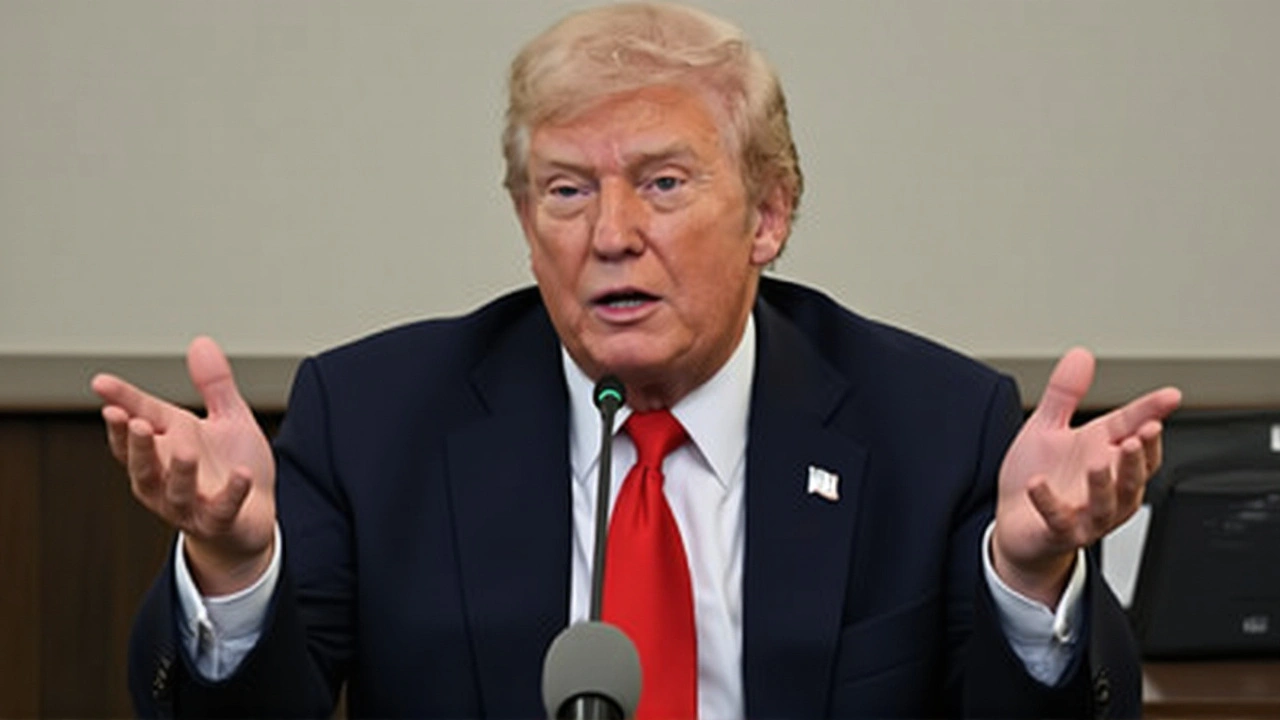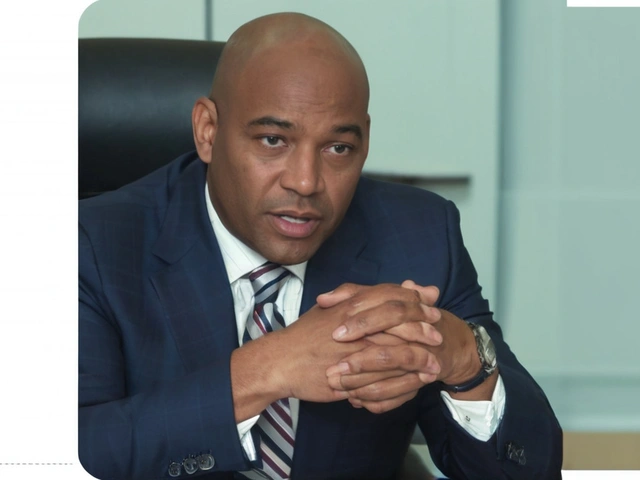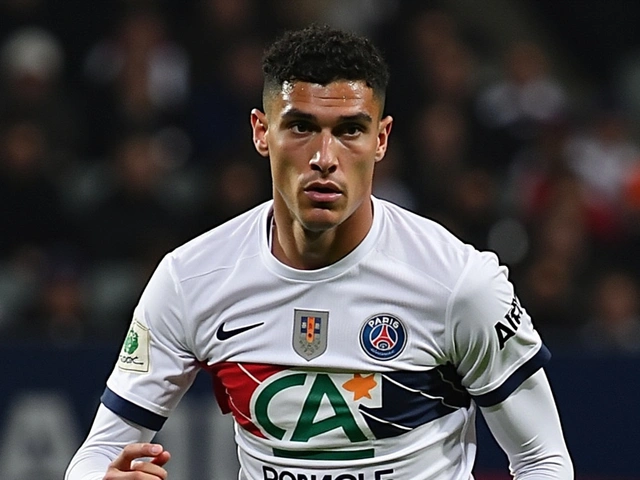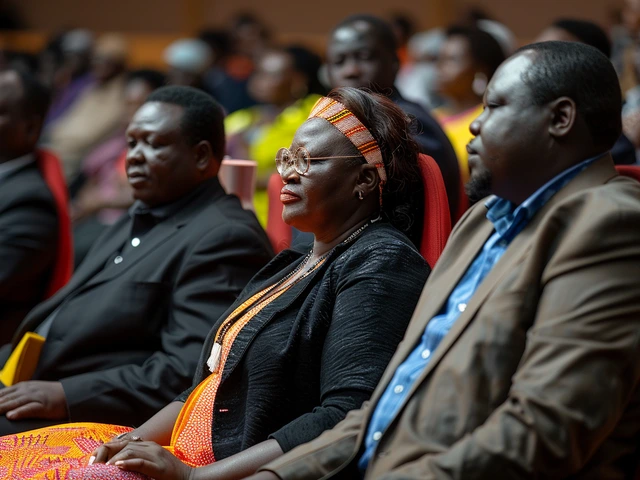
When Maria Corina Machado, Venezuelan opposition leader learned she had won the Nobel Peace Prize on Oct 10, 2025, the reaction was pure disbelief. The announcement came from Norwegian Nobel Committee during a live press conference in Oslo, Norway. Jørgen Watne Frøydnes, chair of the committee, said she was being honored for “promoting democratic rights for the people of Venezuela and for her struggle to achieve a just and peaceful transition from dictatorship to democracy.”
Background to the Nobel Peace Prize
The Nobel Peace Prize, first awarded in 1901, marks its 124th presentation this year. Traditionally the prize has recognized leaders, activists and movements that have alleviated conflict or advanced human rights. This year’s ceremony includes a monetary award of 11.0 million Norwegian kroner (about $1.05 million USD) and a medal bearing Alfred Nobel’s portrait. Nobel Peace Prize announcement 2025Oslo was broadcast worldwide, sparking instant commentary across newsrooms and social feeds.
Machado’s political journey
Born in 1967, Machado trained as an industrial engineer before entering politics in 2000, when she won a seat in Venezuela’s National Assembly at age 32. Over the next decade she became a leading voice against the authoritarian drift of the Bolivarian Republic. In 2013, when Nicolas Maduro succeeded Hugo Chávez, Machado helped organize protests demanding free elections.
The Supreme Tribunal of Justice—Venezuela’s highest court—blocked her presidential candidacy on June 26, 2024, citing a dubious legal technicality. That ruling forced her into hiding for much of 2025, yet she continued to coordinate opposition activities through encrypted channels and clandestine meetings in Caracas, Valencia and Maracaibo.
Committee’s rationale
During the Oslo press conference, Frøydnes emphasized three core reasons for the award. First, Machado’s relentless advocacy for free‑press and assembly despite imprisonment threats. Second, her ability to rally a fragmented opposition into a coherent movement that still managed peaceful street demonstrations. Third, the symbolic weight of recognizing a hidden activist—something the Committee hasn’t done since awarding Liu Xiaobo in 2010.
“Labeling the current regime a ‘dictatorship’ in our citation is a deliberate, historic choice,” Frøydnes added, underscoring the international community’s growing impatience with Maduro’s twelve‑year rule.
Reactions across Venezuela
When the news filtered through social media, Venezuelans gathered spontaneously. In the capital, small crowds in Plaza Bolívar held candles, chanting Machado’s name. In Valencia, a mural of her portrait appeared overnight, spray‑painted with the hashtag #MachadoNobel. Even in remote towns, radio DJs played the announcement repeatedly, urging listeners to stay hopeful.
One university student in Maracaibo whispered, “It feels like the world finally heard us.” The sentiment was echoed by diaspora communities in Miami and Madrid, where rallies were organized outside Venezuelan embassies. Though internet outages were reported in several provinces, the message still managed to spread—thanks in part to peer‑to‑peer networks and satellite phones.
International implications
The award adds fresh pressure on the U.S., EU and regional bodies that have imposed sanctions on Maduro’s government since 2017. Analysts in Washington predict a possible uptick in diplomatic initiatives aimed at facilitating a “national dialogue” before the next scheduled elections in 2026.
Latin American observers note that the Nobel nod could embolden other opposition figures in the region, especially in nations where authoritarianism has resurfaced. “It’s a reminder that peaceful resistance still matters,” said Dr. Ana López, a political science professor at the University of Buenos Aires.
What lies ahead for Machado and Venezuela?
Machado is expected to receive the medal in an Oslo ceremony on Dec 10, 2025—the 124th anniversary of Alfred Nobel’s death. Until then, she will remain in undisclosed safe houses, guarded by a trusted circle of supporters. The Nobel Committee has pledged continued monitoring of Venezuela’s human‑rights situation, and a spokesperson hinted at possible follow‑up grants for civil‑society organizations working on voter education.
Whether the prize will translate into tangible political change remains uncertain. Yet the symbolic boost is undeniable: a battered opposition now carries the world’s most prestigious peace accolade, and that alone reshapes the narrative surrounding Venezuela’s struggle.
- Prize date: Oct 10, 2025
- Monetary award: 11.0 million NOK (~$1.05 M USD)
- Machado’s age: 58
- Maduro’s tenure: 12 years (since Apr 19 2013)
- Key legal block: Supreme Tribunal ruling, June 26 2024
Frequently Asked Questions
How does the Nobel Peace Prize affect Venezuelan opposition groups?
The prize gives international legitimacy and media attention, which can attract funding and diplomatic support. It also energises activists on the ground, many of whom see it as validation of years of sacrifice.
What were the main reasons the Norwegian Nobel Committee cited for the award?
Committee chair Jørgen Watne Frøydnes highlighted Machado’s promotion of democratic rights, her peaceful advocacy despite persecution, and the symbolic importance of honoring a hidden activist fighting a regime the Committee explicitly called a dictatorship.
Will the prize trigger any changes in sanctions against Maduro’s government?
While the prize itself doesn’t alter policy, it intensifies pressure on sanction‑issuing nations. Early statements from U.S. and EU officials suggest a review of diplomatic avenues, possibly opening space for mediated talks before the 2026 elections.
What security risks does Machado face after the announcement?
She remains in hiding, with limited movement to avoid arrest. The Venezuelan intelligence services have a track record of targeting opposition leaders, so her protection relies on a tight network of trusted allies and international monitoring.
When will Machado receive the Nobel medal?
The formal ceremony is scheduled for Dec 10, 2025, the anniversary of Alfred Nobel’s death. Machado is expected to travel under strict security arrangements, though details are being kept confidential.
13 Comments
Write a comment
More Articles

Viral Video of President Tinubu: Old Footage Misleading Public, Says Aide
A video showing President Bola Tinubu pleading with Nigerians has gone viral, leading to mixed reactions. However, presidential aide Bayo Onanuga has clarified that the video is old and has been taken out of context. Despite this, the video has ignited debates concerning Tinubu's leadership and policies, reflecting the nation's current sentiment.

Manuel Ugarte Excluded from PSG Training Amid Manchester United Transfer Talks
Manuel Ugarte, the talented PSG midfielder, has been notably absent from training sessions. With his agent Jorge Mendes negotiating a potential transfer to Manchester United, the absence has sparked speculation. Despite agreed personal terms, negotiations over the transfer fee remain unresolved as PSG continues to seek a €60 million deal.

Key Leaders Gather at Limuru III Summit at Jumuia Conference for Crucial Discussions
The Limuru III summit at Jumuia conference sees prominent Mt. Kenya leaders and locals in attendance. Key figures include Narc Kenya leader Martha Karua and Jubilee Secretary General Jeremiah Kioni. Discussions focus on agreements among residents and a push against the Kenya Kwanza government for a revolution emphasizing liberal democracy and social welfare.
Anand mishra
October 10, 2025 AT 23:35When I first read about Maria Corina Machado receiving the Nobel Peace Prize, I felt a wave of awe rippling through my mind. The sheer bravery of a woman who has spent years hidden in the shadows, coordinating protests in Caracas, Valencia, and Maracaibo is nothing short of legendary. From an engineering background to the frontlines of a democratic struggle, her journey exemplifies how ordinary people can become extraordinary leaders. It is remarkable how the Norwegian Nobel Committee chose to spotlight a hidden activist, reminding the world that peace is often forged in secret kitchens and dimly lit rooms. The citation highlighted her promotion of free press and peaceful assembly, which resonates deeply with those of us who value open dialogue. In a region where authoritarian regimes have tightened their grip, honoring Machado sends a powerful signal that civil resistance still matters. I cannot help but think about the countless unnamed volunteers who risk everything to keep the flame of hope alive under constant surveillance. Their clandestine networks, satellite phones, and peer‑to‑peer connections are the unsung infrastructure behind this Nobel moment. Moreover, the monetary award of 11 million Norwegian kroner will undoubtedly empower local NGOs that work on voter education and human‑rights monitoring. The international community, especially the United States and European Union, may finally feel the pressure to reevaluate their sanctions strategy. Yet we must remain cautious; a medal alone will not topple a regime that has survived for over a decade. Sustainable change will require continued diplomatic engagement, transparent elections in 2026, and unwavering support for civil society. As Venezuelans gathered in Plaza Bolívar with candles, their chants echoed a longing for freedom that no prize can fully satisfy. Still, the Nobel accolade amplifies their voice on a global stage, turning whispers into a chorus heard by world leaders. In the end, this recognition is both a tribute to Machado’s personal courage and a beacon of hope for all those yearning for a peaceful transition.